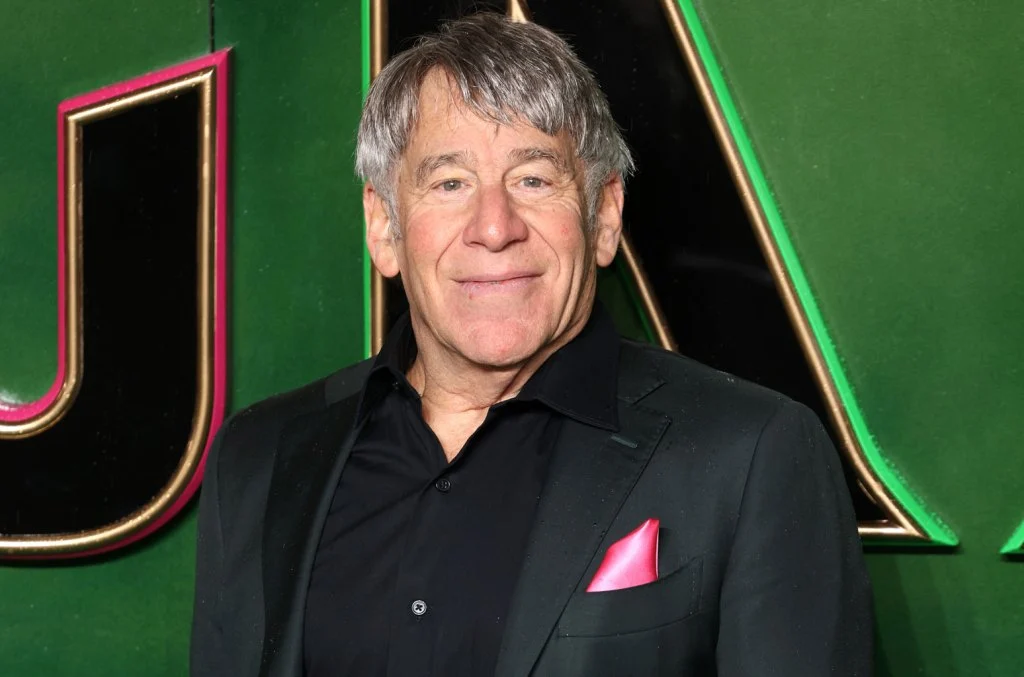ASCAP
ASCAP has named media veteran Marc Zelanko as chief of staff, reporting directly to CEO Elizabeth Matthews. In this newly created role, Zelanko will help drive ASCAP’s mission to grow revenues and improve operational efficiency for its 1.1 million songwriters, composers, and music publishers.
Zelanko brings more than 20 years of experience in business operations and transformation within IP-driven media and entertainment companies. Most recently, he served as senior vice president at Paramount Global (formerly ViacomCBS), where he led strategic initiatives to strengthen operations and streamline processes across global teams. His wins include organizing CEO-level leadership forums, managing the COVID Task Force to maintain operations for 15,000-plus U.S. employees, reducing liabilities through HR process improvements and coordinating the Viacom Marketing Council.
Related
In the aughts, he spent five year at MTV Networks, where he rose to senior vp of business operations and notably helped scale Scratch, a creative consultancy launched by the network.
Earlier in his career, Zelanko worked in the Media & Entertainment Group at Booz Allen Hamilton. He holds a degree from Harvard University and an MBA from Harvard Business School.
Matthews praised Zelanko’s appointment, stating: “Marc is the perfect fit to help ASCAP deliver on our mission to grow revenues and drive efficiencies for the benefit of our more than 1.1 million songwriters, composers and music publishers. He brings a wealth of experience working cross-functionally to lead complex global initiatives, and we are excited to add him to our senior leadership team.”
Zelanko added: “ASCAP has a mindset of innovation and evolution to meet the changing needs of its members and licensees. I look forward to bringing my expertise to ASCAP’s mission in support of improving the future for its songwriters, composers and music publishers.”
This announcement follows ASCAP’s recent hire of John Pershing as Senior Vice President and Chief Technology Officer. Pershing, formerly with What If Media Group, brings extensive experience in IT, product development, and data engineering, further strengthening ASCAP’s leadership team.
Check out a full rundown of this week’s staffing news below.
Anne-Marie Pearce & Chris Barton (PPL)
Image Credit: Courtesy Photo
Trending on Billboard
Ashley Gorley and Shaboozey won top honors at the 2025 ASCAP Nashville Songwriters Celebration, with Gorley winning ASCAP country music songwriter of the year for a record 12th time. That’s more times than anyone has won songwriter of the year at an ASCAP awards celebration in any genre.
Related
ASCAP celebrated the winners at an invitation-only party on Monday (Nov. 17) in Nashville. ASCAP chairman of the board and president Paul Williams, ASCAP CEO Elizabeth Matthews, ASCAP executive vp and head of creative membership Nicole George-Middleton and ASCAP vp of Nashville membership Mike Sistad handed out awards.
Among ASCAP’s most-performed country songs of the year, penned by Gorley, are “Fix What You Didn’t Break” (Nate Smith), “I Am Not Okay” (Jelly Roll), “Liar” (Jelly Roll) and “Park” (Tyler Hubbard). In June, Gorley was inducted into the Songwriters Hall of Fame.
Shaboozey received the ASCAP country music songwriter/artist of the year honor. In addition to his “A Bar Song (Tipsy)” earning ASCAP’s country music song of the year, his “Good News” (co-written by Sean Cook) is also among ASCAP’s most-performed country songs of the year.
“A Bar Song (Tipsy)” was co-written by Sean Cook, Jerrell “J-Kwon” Jones, Joe Capo Kent and Mark “Tarboy” Williams. It was published by Sony Music Publishing, Essancy Music, Seeker Music, Range Music Publishing, Tarpo Music Publishing, Hood Hop Music, Kreshendo and Warner Chappell Music. The song topped the Billboard Hot 100 for 19 weeks, tying Lil Nas X’s “Old Town Road” (featuring Billy Ray Cyrus) as the longest-running No. 1 song in Hot 100 history (which dates to 1958).
Additionally, “A Bar Song (Tipsy)” won a CMA Award for single of the year, a Billboard Music Award for top country song and top-selling song, and a Brit Award for international song of the year. Shaboozey is nominated for new artist of the year at Wednesday’s CMA Awards and recently received Grammy nominations for best country solo performance, best country duo/group performance and best country song.
Sony Music Publishing is the ASCAP country music publisher of the year. Among their awarded titles are “A Bar Song (Tipsy)” for the second consecutive year, “Fix What You Didn’t Break” (Nate Smith), “Hard Fought Hallelujah” (Brandon Lake, Jelly Roll), “Good News” (Shaboozey), “Cowboys Cry Too” (Kelsea Ballerini, Noah Kahan), “Coming Home” (Old Dominion), “Country House” (Sam Hunt), “I Am Not Okay” (Jelly Roll), “4x4xU” (Lainey Wilson) and “Love You, Miss You, Mean It” (Luke Bryan).
The ASCAP writers and publishers of the most-performed Christian music songs also received their awards at the celebration.
A complete list of ASCAP country music winners can be found at the ASCAP site.

Trending on Billboard Kehlani, Kali Uchis and EJAE are the latest trailblazers to be honored by ASCAP’s Women Behind the Music. Newly minted 2026 Grammy nominees Kehlani and EJAE (part of the HUNTR/X trio behind the KPop Demon Hunters breakout hit “Golden”) along with Grammy winning-artist Uchis were recognized for their artistry, cultural impact and […]

Trending on Billboard
Sabrina Carpenter’s “Espresso” was the earworm of 2024, an inescapable pop smash that miraculously retained its charm even after hundreds of listens. But did you ever think a scholarly look at the song would win a Deems Taylor/Virgil Thomson Award?
One just did. The 2025 Virgil Thomson Award for outstanding music criticism in the pop music field is presented to Dan Charnas for his Slate article “The Musical History Lesson Buried Beneath the Song of the Summer.” ASCAP says the article looks at “the popular but ‘nameless’ musical genre that is the foundation” for Carpenter’s smash. (For the record, the song, which Carpenter co-wrote with Amy Allen, Steph Jones and Julian Bunetta, ranked fourth on Billboard’s 2024 Song of the Summer chart.)
The winners of the 56th annual ASCAP Foundation Deems Taylor/Virgil Thomson Awards were announced Thursday (Oct. 30). Awards are presented for outstanding books, articles, liner notes and broadcast programs on the subject of music. Established in 1967 to honor the memory of composer, critic and former ASCAP president Deems Taylor, the awards are made possible by the support of the Virgil Thomson Foundation.
Here are this year’s other winners:
Deems Taylor/Virgil Thomson Award recipients for articles published in 2024:
The award for an article in the pop music field goes to Robert Michael Marovich for his article on the prolific Black songwriter Ted Jarrett, “The Black Songwriter Who Took Nashville by Storm,” published by Zocalo Public Square.
The award for an article in the concert music field goes to Jonathan Kregor for his article “Remembering Clara Wieck in Vienna: Gender, Genius, and Genre in the Post-Beethoven Biedermeier,” published in Women’s Agency in Schubert’s Vienna.
The award for outstanding music criticism in the concert music field is presented to Kevin Bartig for his article, “Olin Downes and the Soviets,” published by the Journal of the American Musicological Society.
A runner-up award in the above category goes to Andy Zax for “Extinctophonics: The Game of Jim,” published in Third Man Records & Books’ Maggot Brain.
Deems Taylor/Virgil Thomson Broadcast/Media Award in pop music:
Director Alex Stapleton, writer Stephen Witt and producer Philip Byron for their documentary, How Music Got Free. The Paramount+ film tells the story of how technology-driven disruption changed music in the late ‘90s and early 2000s. Additional producers included Marshall “Eminem” Mathers, LeBron James, Paul Rosenberg, Maverick Carter, Jamal Henderson, Steve Berman, James Chapman, Bruce Gillmer, John Janick, Dan Sacks, Bridgette Theriault, James Thayer, Naomi Wright, Steve Stoute, Anthony Seyler, Stevenson Waite, Michael Maniaci and Malik Johnson.
Deems Taylor/Virgil Thomson Broadcast/Media Award in concert music:
Producer David Osenberg for the weekly program “Sounds Choral,” a production of WWFM, The Classical Network. The program explores the choral art form and is hosted by a rotating roster of choral conductors, composers and scholars including Ryan Brandau, Gabriel Crouch, Jason Max Ferdinand, Jacqueline Horner-Kwiatek, Christopher Jackson, James Jordan, Amanda Quist, Steven Sametz, Deborah Simpkin-King and Ethan Sperry.
ASCAP Foundation Paul Williams “Loved the Liner Notes” Award:
Lauren Du Graf for “Alice Coltrane: The Artist in Ascension” from The Carnegie Hall Concert on Impulse Records.
Runner-up awards in the above category are also given to Elizabeth Nelson for “Hours in the Colosseum: Notes on the 1974 Tour” from The 1974 Live Recordings by Bob Dylan & The Band on Sony Legacy and Shana L. Redmond for Paul Robeson – Voice of Freedom: His Complete Columbia, RCA, HMV and Victor Recordings on Sony Classical.
The “Loved the Liner Notes” Award was established in 2016 and is funded by ASCAP Foundation President Paul Williams.
Deems Taylor/Virgil Thomson Book Awards in pop music:
Joe Boyd for And the Roots of Rhythm Remain, a history of music from all over the world that influenced jazz, rhythm & blues and rock ‘n’ roll, published by Faber & Faber
Brian Wright for The Bastard Instrument: A Cultural History of the Electric Bass, published by University of Michigan Press.
A runner-up award in this category goes to Sheila Curran Bernard for Bring Judgment Day: Reclaiming Lead Belly’s Truths from Jim Crow’s Lies, published by Cambridge University Press.
Deems Taylor/Virgil Thomson Book Award in concert music:
David Suisman for Instrument of War: Music and the Making of America’s Soldiers, published by University of Chicago Press.
A runner-up award in this category goes to Mikel Rouse for The World Got Away: A Memoir, published by University of Illinois Press.
More information about The ASCAP Foundation Deems Taylor/Virgil Thomson Awards is available at their site.
Trending on Billboard ASCAP, BMI and SOCAN have all adopted policies to accept registrations of musical compositions partially generated using artificial intelligence (AI) tools, the PROs jointly announced Tuesday (Oct. 28), while noting that they will continue to reject registrations of fully AI-generated works. According to a press release, all three PROs define a partially […]
Trending on Billboard Grammy-winning artist Kali Uchis, five-time Grammy nominee Kehlani, and KPop Demon Hunters’ songwriter, lead vocalist and rising star EJAE will be honored at the 17th annual ASCAP Women Behind the Music. The event is set for Wednesday, Nov. 12, in Los Angeles. Kehlani, a five-time Grammy nominee, received the Rule Breaker Award […]
Lola Young, Jungle and Florence Welch are among the top winners at this year’s ASCAP London Celebrates Creators event, held on Tuesday evening (June 17) at The Shard in London. The ceremony is designed to celebrate ASCAP’s U.K.-affiliated talent for their success in the U.S.
Continuing a breakout 12 months that have seen her score a Billboard Hot 100 hit with “Messy” (peaking at No. 8) and perform at Coachella, Young received the ASCAP Vanguard Award, which recognizes songwriters whose work is helping to shape the future of music.
Trending on Billboard
Hucknall collected the ASCAP Golden Note award, marking 40 years of international success with pop band Simply Red. The Golden Note has previously been awarded to icons such as George Michael, Elton John and, most recently, Duran Duran in 2016.
Florence Welch of Florence + The Machine fame was recognized for her contribution to Drake’s “Rich Baby Daddy” alongside Isabella Summers, which was named winning streaming song. The track features an interpolation of Welch’s “Dog Days Are Over” and features Sexyy Red and SZA on vocals. It reached No. 11 on the Billboard Hot 100 in 2023, and also hit the summit on the Rhythmic Airplay chart.
Josh Lloyd-Watson, Tom McFarland and Lydia Kitto of dance act Jungle were honored with the hot dance/electronic song award for “Back on 74.” The trio won group of the year at last year’s BRIT Awards, where they performed the track live at London’s O2 Arena. It marks Jungle’s biggest streaming hit to date, currently at 420 million plays on Spotify alone.
Following his ASCAP Vanguard award in 2024, Cian Ducrot’s co-writing credits on SZA’s “Saturn” led to him being honored for song of the year as well as top streaming song by ASCAP.
Drum n’ bass artist Kenya Grace, meanwhile, took home the top hot dance/electronic song prize for “Strangers.” The track saw the 22-year-old become only the second woman in history to score a U.K. No. 1 with a single fully written, performed and produced by herself, following Kate Bush hitting the top spot in 2022 with “Running Up That Hill.” In 2024, the South Africa-born British-based singer-songwriter and producer received the ASCAP Global Impact Award, in recognition of her success in the dance music world.
2025’s top box-office film awards went to composers Robin Carolan for Nosferatu; Geoff Barrow (of Portishead) and Ben Salisbury for Civil War; Christopher Benstead for The Ministry of Ungentlemanly Warfare; Daniel Pemberton for Fly Me to the Moon; Raffertie for The Substance; and Daniel Blumberg for The Brutalist.
A full list of 2025 ASCAP London winners can be found on ASCAP’s website.
Lola Young and Simply Red’s Mick Hucknall will collect prestigious awards from ASCAP at a ceremony in London next Tuesday (June 17).
The “Messy” hitmaker will be awarded the Vanguard Award which recognises an artist whose “innovative work is helping to shape the future of music,” and follows Young’s success at the Ivor Novello Awards in May in the Rising Star Category.
First released in May 2024, “Messy” enjoyed a month-long stay at No. 1 on the U.K.’s Official Singles Chart earlier this year, and peaked at No. 14 on the Billboard Hot 100. The song also topped the Pop Airplay and the Rock & Alternative Airplay charts. Later this month, Young will perform at Glastonbury Festival.
Simply Red’s Hucknall will also be celebrated at the ASCAP London Music Awards with the Golden Note Award which recognizes his songwriting catalog over the past 40 years as the lead singer and songwriter in Simply Red as well as in his solo career.
Trending on Billboard
The group released their debut LP, Picture Book, in 1985 and the band boasts five U.K. No. 1 LPs, and two of their songs – “Holding Back the Years” (1986) and “If You Don’t Know Me by Now” (1989) – hit No. 1 on the Billboard Hot 100. In 2025, Simply Red embarked on a 40th anniversary tour through the U.K., Europe and South America.
”Mick Hucknall has made an indelible mark on a generation with his impassioned vocals and classic songwriting,” said songwriting great and ASCAP chairman of the board and president Paul Williams. “His singular mix of soul, funk and pop sounds made him a master of blue-eyed soul. We are thrilled to present him with the ASCAP Golden Note Award.”
The Golden Note Award has not been handed out since 2016 when Duran Duran were chosen for the prize. Other previous recipients include George Michael, Elton John, Blondie, Usher, Lionel Richie, Jay-Z and Stevie Wonder.
ASCAP will celebrate both Young and Hucknall at a private event in London on June 17, with U.K. songwriters honored in categories such as song of the year, top streaming song, top hot dance/ electronic song and more.
In a perfect world, major career honors would be nicely spaced out. But sometimes, they bunch up. Case in point: On June 10, just two days before he receives the Johnny Mercer Award at the annual Songwriters Hall of Fame (SHOF) gala, legendary Broadway composer Stephen Schwartz will receive the ASCAP Foundation Champion Award, recognizing his humanitarian efforts and contributions.
There will also be a second honoree at the ASCAP Foundation event: artist and music education advocate Chandrika Tandon, who won her first Grammy in February for best new age, ambient, or chant album for Triveni.
Trending on Billboard
While the close proximity of the two events may be less than ideal, the ASCAP Foundation event appears to be a very different kind of evening — namely, smaller and more intimate. Where the SHOF dinner and gala will be held at the Marriott Marquis Hotel, the ASCAP Foundation “cocktail celebration” will take place at the New York home of Tony-winning composer Adam Guettel (Floyd Collins, The Light in the Piazza, To Kill a Mockingbird, Days of Wine and Roses).
Composers and lyricists (and EGOT recipients) Benj Pasek and Justin Paul (Dear Evan Hansen, La La Land) will perform a tribute to Schwartz. Composer, pianist and singer-songwriter Emily Bear (Moana 2, The Unofficial Bridgerton Musical) will perform and talk about her creative journey and The ASCAP Foundation.
The ASCAP Foundation Champion Award recognizes ASCAP members who have made a significant impact through social action and humanitarian efforts. Previous recipients include Billy Joel, Natalie Merchant, Judy Collins, Arlo Guthrie and Ne-Yo.
Founded in 1975, The ASCAP Foundation has supported American music creators through music education, talent development and humanitarian programs for five decades.
ASCAP Foundation president Paul Williams said in a statement, “As we celebrate 50 years of The ASCAP Foundation’s work empowering music creators and uplifting communities, it is an honor to recognize Stephen and Chandrika — two extraordinary individuals whose artistry and humanitarianism have inspired countless creatives. Their passion reflects the very spirit of our mission, and we are proud to honor them as Champions.”
Williams is on the board of directors of the SHOF and is a past recipient of the Johnny Mercer Award. (The ASCAP Foundation news announcement doesn’t mention Schwartz’s SHOF honor.)
These aren’t Schwartz’s only awards this year. In February, he received the Icon Award at the 15th Guild of Music Supervisors Awards in Los Angeles, where he was honored alongside veteran music supervisor Bonnie Greenberg.
Tickets to the ASCAP Foundation’s 50th Anniversary Gala run $2,000 and can be purchased here.
Jack Antonoff was named ASCAP Pop Music Songwriter of the Year at a private event at the Petersen Automotive Museum in Los Angeles on Thursday (May 1). The hitmaker co-wrote six of ASCAP’s most-performed songs of the past year: Sabrina Carpenter’s “Please Please Please” and no fewer than five songs by Taylor Swift: “Anti-Hero,” “Fortnight,” “I Can Do It with a Broken Heart,” “Is It Over Now? (Taylor’s Version) (From the Vault)” and “Karma.”
Antonoff, 41, has won 11 Grammys, including two in songwriting categories: song of the year for “We Are Young” (which he co-wrote with his fun. bandmates and Jeff Bhasker) and best rock song for “Masseduction” (which he co-wrote with Annie Clark, a.k.a. St. Vincent). He won best song musically and lyrically at the 2023 Ivor Novello Awards for “King” (which he co-wrote with Florence Welch of Florence + the Machine).
Trending on Billboard
Teddy Swims’ breakthrough hit “Lose Control” is the ASCAP Pop Music Song of the Year. Co-written by ASCAP songwriter Joshua “Ammo” Coleman, it set a new record for the longest run song in the top 10 of the Billboard Hot 100 (59 weeks, as of this week). The smash is published by Kobalt Music and Top Notch High Quality Music.
ASCAP Pop Music Publisher of the Year goes to Sony Music Publishing. Among their list of honored works are “A Bar Song (Tipsy)” (Shaboozey), “Hot to Go!” (Chappell Roan), “Houdini” (Dua Lipa), “Not Like Us” (Kendrick Lamar), “Stick Season” (Noah Kahan) and “Texas Hold ‘Em” (Beyoncé).
ASCAP Pop Music Award-winning songwriters this year also include Amy Allen, Beyoncé, Chappell Roan, Dan Nigro, Dua Lipa, Justin Timberlake, Justin Tranter, Noah Kahan, Olivia Rodrigo, Shaboozey and Victoria Monét.
The ASCAP Pop Music Awards honor the songwriters and publishers of the most-performed ASCAP pop songs of 2024. The winning songs are determined by data for terrestrial and satellite radio and for programmed and on-demand audio streams, all provided by Luminate Data LLC.
More information on the 2025 ASCAP Pop Music Award winners is available at www.ascap.com/popawards25.

 State Champ Radio
State Champ Radio 








